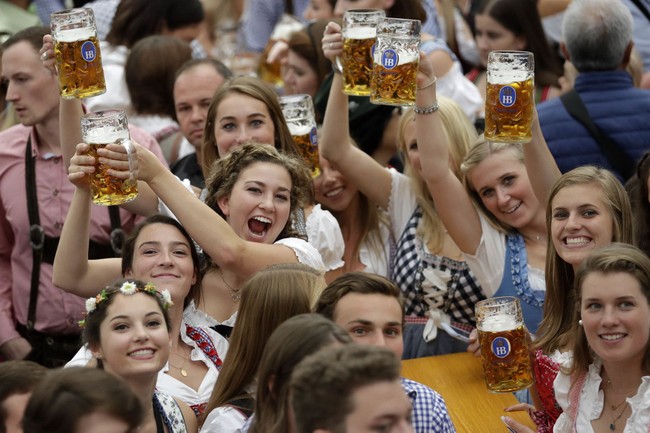
Ernest Hemingway — one of my primary literary heroes — reportedly once pointed out, “I drink to make other people more interesting.” And then there is the famous (and apocryphal) quote attributed to Benjamin Franklin, “Beer is proof that God loves us and wants us to be happy.” Finally, we have the famous William Claude “W.C.” Fields, who famously said, “I was once married to a beautiful blonde girl. She drove me to drink. It’s the one thing I’m grateful to her for.”
For some time now — as in, since Biblical times (1 Timothy 5:23) it’s been generally assumed that alcohol, when used in moderation, was healthful. But now we see a report that, after millennia of experience with adult beverages, that view may be wrong after all.
Even light drinking was associated with an increase in cancer deaths among older adults in Britain, researchers reported on Monday in a large study. But the risk was accentuated primarily in those who had existing health problems or who lived in low-income areas.
The study, which tracked 135,103 adults aged 60 and older for 12 years, also punctures the long-held belief that light or moderate alcohol consumption is good for the heart.
The researchers found no reduction in heart disease deaths among light or moderate drinkers, regardless of this health or socioeconomic status, when compared with occasional drinkers.
The study defined light drinking as a mean alcohol intake of up to 20 grams a day for men and up to 10 grams daily for women. (In the United States, a standard drink is 14 grams of alcohol.)
Light drinking? I think I see the problem with their reasoning.
It should come as no surprise that I’m in favor of the occasional adult beverage. I have my traditional two beers with my usual Saturday lunch at our favorite lodge/restaurant here in the valley, and I like the occasional snort of some good stuff of an evening. It’s been years since I drank enough to feel any effect, although I will confess that back in our late teens (we turned legal at 18 back then) and early twenties, my friends and I routinely turned the weekend into a mobile earthquake of drunken excess. Those were, though, quite different times. And we were all a lot younger.
See Related: Beer Is Great, but a Suds Expert on TikTok Says We’ve Been Pouring It Wrong All This Time
Video Surfaces of Justin Timberlake Lecturing Britney Spears on Alcohol After He Is Arrested for DUI
I’m a little skeptical of this study. Note that there are increased rates of deaths by cancer among drinkers in Britain, but the risk is accentuated by existing health conditions and poverty. Well, duh. Teetotalers with these same existing health conditions and poverty would likely show greater rates of death by cancer regardless of whether they drink or not.
Look, beer and wine have both been around since about 6,000 BC. Maybe longer. We’ve known for a long, long time when to lay off the sauce, or at least, most of us have. Intake in moderation, regardless of this study, can have benefits that the medical community just doesn’t seem to consider. Sometimes, a tot can help remove some of the stress of the day, and a beer, a glass of wine, or a cocktail, in moderation, can be great social lubrication. These things are benefits, too.
Fortunately (unlike most of the world these days), at least here in America, we’re still free to decide for ourselves whether or not to have a glass of beer or a snort of whiskey. We are adults, we are literally inundated with information on the health risks of anything and everything, and we can make up our own minds. Personally, I’ll continue to enjoy the odd snort without worrying much about what some group of British scolds thinks. There is more to life, after all, than merely its length; enjoying life counts for something, too.
I leave you now with a great piece of advice from a famous American academic and scholar of adult beverages:

